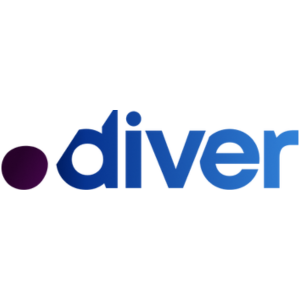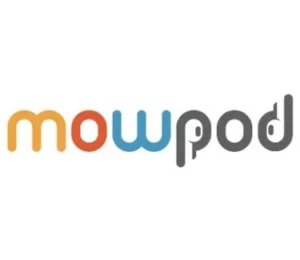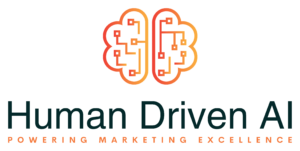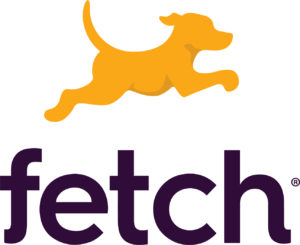LISTEN IN A POD APP
Filters
Rob Freedman | Zuper
Integrating marketing into Field Ops — Rob Freedman // Zuper
Rob Freedman, Head of Growth at Zuper, talks about how SaaS companies are leveraging the power of artificial intelligence to not just grow exponentially, but strategically. Field Ops provides businesses with the unique opportunity to engage in one-to-one marketing by tapping into individual customer interactions. Through field service technicians, companies can gather valuable feedback, personalize…
Play PodcastRob Freedman | Zuper
How growth marketers leverage AI — Rob Freedman // Zuper
Rob Freedman, Head of Growth at Zuper, talks about how SaaS companies are leveraging the power of artificial intelligence to not just grow exponentially, but strategically. Generative AI tools like ChatGPT have become indispensable for marketers, serving them daily in tasks such as content ideation and keyword research. However, the true power of AI lies…
Play PodcastCourtney Trudeau | Merkle
CX at scale & speed of customer expectations — Courtney Trudeau // Merkle
Courtney Trudeau, SVP of Tech Strategy at Merkle, provides an in-depth guide on meeting and exceeding customer expectations. Customer expectations have shifted towards more personalization and an overall exceptional experience during the buying journey. As technology advances and consumers gain more insight into organizations, brands need to adapt quickly to keep up with rapidly evolving…
Play PodcastKris Hartvigsen | Dooly
Sales Happiness Index for MarTech companies — Kris Hartvigsen // Dooly
Kris Hartvigsen, CEO and Co-Founder of Dooly, discusses business strategies for marketing technology companies. If the Great Resignation is any indication, retention depends on companies keeping employees happy. To do so, they must engage in research to figure out what drives happiness and productivity. Today, Kris talks about the sales happiness index for marketing technology…
Play PodcastKris Hartvigsen | Dooly
Product-led SAAS growth — Kris Hartvigsen // Dooly
Kris Hartvigsen, CEO and Co-Founder of Dooly, discusses business strategies for marketing technology companies. Salespeople are frustrated by anything that takes them away from high value tasks. Products that solve those problems get adopted by users, and are eventually purchased by the sales enablement team. Today, Kris talks about product-led SaaS growth.
Play PodcastGeorge Corugedo | Redpoint Global
Closing the CX gap using data — George Corugedo // Redpoint Global
Redpoint Global Chief Technology Officer, George Corugedo, wraps up his conversations on data quality. Clean data is critical to driving the omnichannel customer experience consumers have come to expect. However, keeping that data clean is a challenge marketers need to tackle continuously. Today, George talks about closing the customer experience gap using data.
Play PodcastGeorge Corugedo | Redpoint Global
Achieving superior data quality — George Corugedo // Redpoint Global
Chief Technology Officer at Redpoint Global, George Corugedo, continues discussions on data quality. Companies want to ensure that the data driving their business decisions is accurate. They understand that data only becomes valuable when it solves their business problems. Today, George lays out strategies to achieve superior data quality.
Play PodcastGeorge Corugedo | Redpoint Global
Data quality awareness — George Corugedo // Redpoint Global
George Corugedo, Chief Technology Officer at Redpoint Global, talks about data quality. Data can be tremendously useful for driving business decisions. But, the business must be confident in the quality of the data or they’ll revert to intuition-driven decisions. Today, George showcases the importance of data quality awareness for organizations.
Play PodcastTricia Gellman | Drift
3 Eras of Marketing: Revenue Era — Tricia Gellman // Drift
Tricia Gellman, the CMO of Drift continues the conversation about how marketing has changed throughout the last four decades. Drift is a conversation marketing platform that helps businesses to communicate effectively with their customers. The role of marketers continues to change as we move away from the internet age. Today, Tricia talks about the revenue…
Play PodcastTricia Gellman | Drift
3 Eras of Marketing: Internet Age — Tricia Gellman // Drift
Tricia Gellman is the CMO of Drift, an online revenue acceleration platform. And she’s here to talk about the past, future, and present of marketing. While there’s so much to gain from digital marketing, we did lose sight of some important elements along the way. Today, Tricia discusses the rise of the internet age.
Play PodcastAbout Marketing Channel: CRM
Customer Relationship Management (CRM)
Customer Relationship Management software is the main source of customer information and data for many businesses. Large and small businesses heavily rely on CRM's to manage and execute complex customer-facing operations.
Relationship building and management involve communication, trust, and conflict resolution. To strengthen bonds with loved ones, communication is key. Listening and understanding the other person's point of view can help to foster trust and create a safe space for open dialogue. When conflict arises, it's important to work together to find compromise and understanding. Taking the time to nurture and build relationships can have a lasting positive impact on the people involved. More about it on this site
CRM software specializes in organizing client and customer contact info and provide tools to manage customer relationships at every stage. Multiple teams within organizations from customer success to sales use CRMs to track B2B/B2C messages, log sales and keep profiles and notes on customers and clients in one location.
Types of CRM Solutions
Different types of CRM solutions exist to manage specific customer interactions. However, they're all designed to better understand your customers and contacts. Some CRM software specializes in improving customer satisfaction, whereas others solely concern managing customer sales processes.
The different types of CRM software and solutions include:
- Conversation CRMs - Conversation-focused CRM tools manage and document client conversations via email and phone. They organize inboxes across the company to keep teams updated on the latest conversations between the organization and its customers and clients.
- Leads and deals CRM systems - A CRM system that sales teams utilize for lead management and tracking sales activities. The software provides sales reps with oversight of the entire sales pipeline. They help sales reps manage the sales cycle, logging the steps and tracing interactions from first contact with potential customers to a closed sale. Other features help sales agents identify cross-sell and up-sell opportunities.
- Contact CRM - A customer retention tool designed to gather client information for future touch campaigns and interactions. The CRM logs notes such as customer birthdays or their work roles. It's a useful tool to build rapport and relationships with clients by keeping track of their important life moments. Wishing a client happy birthday or congratulating them on entering a new role bolsters and reinforces their relationship with your company, revealing new business opportunities.
- Marketing CRM - Marketing CRM software encompasses many of the tools found in lead and contact CRMs. Its marketing automation workflows help marketing teams manage marketing campaigns. Although they're expensive investments, they manage the complex aspects of marketing campaigns.Marketing automation (3) marketing teams (1)
CRM solutions also have different operating capabilities. CRM systems operate on:
- Desktop systems where the CRM is run and accessed from a single computer.
- Client or server systems with central databases stored on a server. The software is installed on each user's laptop or desktop.
- Cloud-based software or systems provided, and hosted by, a third-party host. The CRM is accessible from a cloud-connected device.
CRM Tools and Features
CRM software provides a selection of customer-centric tools to help companies manage customer relationships and condense contact management in one online location. All-in-one CRM platforms provide all of the following features, whereas other CRMs focus on specific areas of customer relationship management like customer experience. The most common customer relationship management features include:
- Lead management - Users are able to manage sales pipeline activities, from end-to-end.
- Sales forecasting - Sales teams can create forecasting reports to gain greater visibility of the sales pipeline, identifying sales-ready leads more accurately and tracking lead targets through to the post-sales phase. Reports are also used to identify up-sell and cross-selling opportunities.
- File storage and sharing - Users upload content and information to a centrally stored location in the CRM system. This information is instantly accessible to coworkers who have access to the CRM across the organization.
- Analytics dashboards - Customer data is aggregated by the system and presented in useful dashboard displays. Dashboards offer customization options to suit individual needs and priorities.
- Email inbox management - The CRM system logs and syncs all emails between the business and client, providing an overview of all customer interactions. Emails can be created, sent, tracked and viewed by CRM users across the company. The tool is also used by customer service representatives to address customer experience issues and improve customer satisfaction.
- Contact management - The CRM system collects and stores information about the client or customer in one easily accessible location. The system creates a client profile that users can access across the company. Profiles generally display points of contact, track sales opportunities, lists various business operation locations and more.
Popular Customer Relationship Management Software
- Zoho CRM - A cloud-based, customer relationship management tool delivering an excellent mix of CRM features and integrations. It's compatible with all Zoho products, is free up to 10 users, includes gamification models and powerful email marketing tools. Zoho CRM is nearly an all-in-one solution, providing real-time analytics, sales automation tools and an extensive variety of customer service tools (social media, email).
- HubSpot CRM - A free CRM with a variety of advanced CRM applications for every department of your team. It's one of the best platforms for small businesses, providing end-to-end MarTech solutions on a freemium model. HubSpot CRM is capable of scaling rapid growth in your business, and it can manage an influx of customer interactions with ease.
- Zendesk Sell - A CRM platform geared toward managing sales processes. Integrated tools help sales reps turn conversations into conversions. Marketing automation and time-saving, AI-based features review customer inquiries, filtering them based on their lead quality.
- Salesforce - The leading customer relationship management tool in the CRM industry. It's suited for large and small businesses of all types and boasts a large list of Salesforce partners it's interoperable with. It's known for its powerful AI, advanced features and powerful third-party apps.
- Insightly CRM - A visually appealing customer relationship management solution. It's functionality and various integrations are best suited for small businesses. It's intuitive interface and fresh design is highly-suited for customer service and overall business processes.
How to Create a CRM Business Strategy
Customer relationships are more important than ever to business strategies. Managing consumer relationships require more maintenance than before and CRM strategies are critical to successfully engage them and manage customer expectations.
The best CRM strategies delicately balance people and software to accomplish CRM initiatives and goals. You can create a CRM strategy from the ground up by following a simple series of steps:
- Step one: Define your strategy goal - Envisioning goals and defining purposes are an essential first step. Examining your business' overall strategy and top-level goals is vital to determining which strategies to implement.
- Step two: Identify and set customer personas - Research your customers and acquire information on their behavioral characteristics and interests. Create detailed personas from acquired information to understand the customers who are buying from you and why. Customer personas will keep your business on track and focused on meeting customer needs and expectations.
- Step three: Define your customer's journey - Your strategy needs to guarantee excellent customer service and experience at every touchpoint of the customer journey. Map every interaction of the customer journey to highlight areas of improvement and establish team responsibilities.
- Step four: Study the competitive market - Knowing the challenges and obstacles your strategy faces is critical to revising and improving your strategy. Look for trends, opportunities, areas where your company fits in the market and more to establish your positioning.
- Step five: Thoroughly understand your service or product - Your value proposition communicates to customers why they need your product or service. Take time to develop your service/product narrative to thoroughly define your brand tone and voice and implement best practices for customer communication.
- Step six: Choosing a CRM system - There isn't a one-size-fits-all customer relationship management solution. Choose one that fits, or closely aligns, to your business' pricing, capabilities and ease-of-use needs. Define what a lead, opportunity and prospect is to your business before choosing a CRM. Otherwise you may end up choosing the wrong one and waste part of your budget on signup and startup costs.
- Step seven: Set key performance indicators (KPIs) for each team - Measurable KPIs keep your teams on track toward accomplishing goal benchmarks. As you set goals for your teams, make sure to make them SMART. SMART goals are thoroughly specific, measurable, achievable, realistic and time-bound.
CRM System's Role in Customer Success Management
Customer relationship management is the crux of customer success team's business strategy. Customer success' relationship-focused approach to client management is critical to aligning clients with your business goals. The overall goal of CS is to generate mutually beneficial outcomes for the business and its customers.
Customer success associates and managers utilize CRM solutions to provide customer service, manage customer relationships and customer data.
CS teams apply CRM software to:
- Communicate with customers and improve customer loyalty.
- Reduce or prevent client churn.
- Improve customer experience.
- Identify and fix customer issues before they become a problem.
- Provide customer support.
- Update and manage customer information.
- Follow-up customer requests.
Although customer support is a responsibility for CS teams, it's secondary to applying strategies that prevent issues requiring customer support from occurring at all.
Although CRM features are robust, alternative customer success platforms exist that focus solely on customer relationship tools.
Customer Relationship Management Marketing
Apart from contact management, CRM's marketing automation tools assist marketing teams with executing their campaigns on a large scale. CRM technology applies a set of processes that is executed when customers perform specific activities. Marketing automation features in CRM software segments customers according to the activities they perform and complete.
Marketing CRM platform frameworks capture every customer interaction, analyzing historical data to define the entire customer journey. Marketing CRM technology helps marketers design successful campaigns, create workflows and predict conversions for sales teams.
With the power of Marketing CRM software, marketers can:
- Automate personalization using stored customer data, documented interactions, social media profiles and client purchase history.
- Eliminate workflow obstacles by implementing specific activity triggers and conditions.
- Define the customer journey as it pertains to their business goals and needs.
Some CRM systems have marketing features built into their platforms while others utilize third-party services like Campaigner or Mailchimp.
Read MoreRead Less
Sponsors of the MarTech Podcast















































